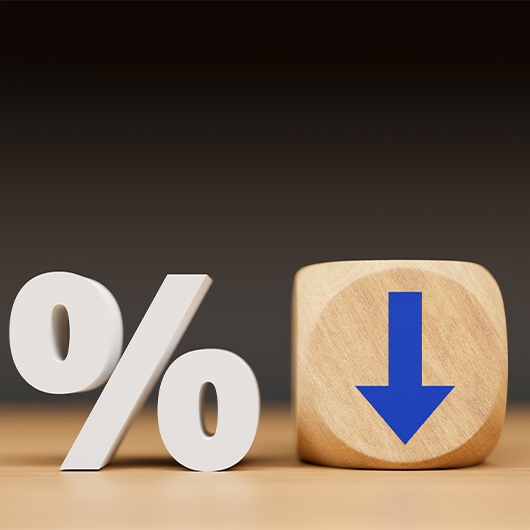Home Equity Loan or HELOC: Which is Right For You?
Home Equity Loan or HELOC: Which is Right For You?
As U.S. home prices rose a record 18.6% and home equity increased, a growing number of homeowners have been looking at the potential of leveraging the equity in their homes to finance renovations, consolidate debt or pay off other expenses. Home equity — the difference between your home’s market value and what you owe on your mortgage or any loans secured by your home — can be a valuable tool for securing a loan or line of credit, often at a favorable interest rate.Home equity loans and home equity lines of credit (HELOCs) both offer the opportunity to use the equity in your home to get cash in hand. And because your home serves as collateral, they may have lower interest rates than unsecured debt, such as credit cards or personal loans. Additionally, the interest you pay on a home equity loan or HELOC may be tax-deductible.*
Which should you choose? The answer depends on your borrowing needs. Following are some considerations to keep in mind as you evaluate whether a HELOC or home equity term loan may be right for you.
Home equity term loan: Lump sum with fixed payments
If you have a one-time borrowing need — e.g., you plan to renovate your kitchen, add a family room or consolidate your credit card debt — and you know exactly how much you will need, a home equity term loan may be a good solution for you.
A home equity loan pays you a one-time lump sum in the amount you choose, up to the limit established by the lender (based on applying a percentage, often 75-85%, to the amount of equity in your home, and evaluating your creditworthiness). It has a fixed interest rate, meaning the rate stays the same through the life of the loan, and a fixed payment schedule. These terms protect you from potential interest increases and make it easy to budget, since your payment is the same each month.
Here’s another possibility for a home equity term loan: If you’ve built up enough equity, you may be able to refinance your mortgage with it. What’s the advantage? The term may be shorter than that of your first mortgage, enabling you to build equity faster and pay your house off sooner. You can potentially save money on closing costs and private mortgage insurance, too. Plus you’ll have the security of a fixed rate and the predictability of a fixed payment for the life of your loan.
HELOC: Revolving credit line with variable payments
If you anticipate needing to borrow money on a more frequent basis — e.g., you need a safety net for emergency or unexpected expenses, plan to do a series of home improvements over time or have recurring expenses such as tuition payments — you may want to consider a home equity line of credit.
A HELOC is an open-ended loan that enables you to borrow money up to your preset credit limit whenever you need it, without having to apply every time. You make payments only when you have borrowed against your HELOC and have an outstanding balance. At other times, you simply know that this revolving credit line is available should you need it.
Like a home equity loan, a HELOC has a fixed lifespan, which is divided into two phases: the draw period, often lasting 10 years, when you can freely borrow from your line of credit while making payments, and the repayment period, often spanning 20 years, when you are expected to repay your outstanding balance without borrowing any additional funds.
Unlike a home equity loan, minimum monthly payments fluctuate with a HELOC. That’s because the interest rate is variable, meaning it ebbs and flows based on the prime rate. Also, each time you tap into your HELOC funds, you increase your outstanding balance, which spurs a recalculation of the minimum payment.
The importance of making on-time payments
As with any loan or line of credit you may take out, holding up your end of the deal means making prompt payments equal to or greater than the minimum monthly payment amount. When you use your home as collateral, you are agreeing that the lender can take possession of your home if you default on the loan. Read the terms of your loan carefully before signing to make sure you understand your responsibilities and any consequences of missed or late payments.
If you’re interested in learning more about using the equity in your home to secure a term loan or line of credit, contact your local Dollar Bank loan expert today.
*Consult your tax advisor regarding the deductibility of interest.
This article is for general information purposes only and is not intended to provide legal, tax, accounting or financial advice. Any reliance on the information herein is solely and exclusively at your own risk and you are urged to do your own independent research. To the extent information herein references an outside resource or Internet site, Dollar Bank is not responsible for information, products or services obtained from outside sources and Dollar Bank will not be liable for any damages that may result from your access to outside resources. As always, please consult your own counsel, accountant, or other advisor regarding your specific situation.
Posted: February 04, 2022




